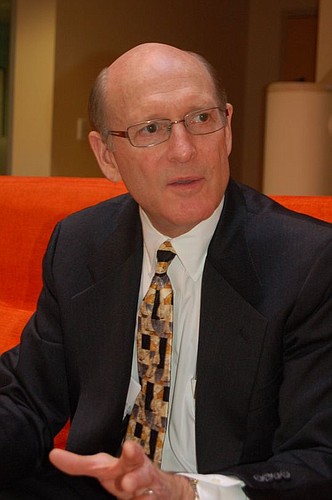
How the city promotes itself as a destination for tourists and conventions is about to undergo its most substantial change in nearly 40 years.
For decades, the Jacksonville and the Beaches Convention & Visitors Bureau — rebranded several years ago as Visit Jacksonville — has operated as a not-for-profit corporation under contract to the city to manage tourism promotion and attract business and leisure travelers.
The city will issue in February a request for proposals for the next five-year renewal of the tourism marketing contract and it will include some new guidelines and policies.
The change process began in early 2016 when the Duval County Tourist Development Council, which is under the auspices of City Council, started discussing proposed amendments to the county’s Tourist Development Plan.
When council enacted in September the amendments — such as how proceeds from one third of the tourist development tax levied on hotel bills that’s designated for marketing and promotion may be spent — it was the first time the regulations had been reviewed since the plan was adopted in 1979.
The 2 percent portion of the 6 percent bed tax that funds the plan is projected to generate about $7.4 million for the fiscal year that will end Sept. 30.
More changes are on the way for how the city promotes tourism following a study of Visit Jacksonville’s policies and procedures conducted by the Office of the Council Auditor.
The purpose of the analysis was to help the city become more familiar with Visit Jacksonville’s operations and to identify potential improvements to include in the upcoming request for proposals.
In addition to interviewing Visit Jacksonville management, auditors reviewed the agency’s general ledger activity and contacted other destination marketing organizations to better understand best practices in the industry.
“We welcomed the review,” said Visit Jacksonville President and CEO Paul Astleford. “The only way we will get government to truly understand the industry is to get them to participate in it.”
One of the findings in the analysis is that while Visit Jacksonville follows IRS regulations for nonprofits, the federal law isn’t entirely consistent with the city ordinance code related to employee travel expenditures.
The auditor’s report cites conflicts in per diem allowances, tipping and the nature of reimbursed expenses, such as travel insurance and fare rates.
After discussions with Visit Jacksonville concerning the issues, “it became evident” the organization may benefit from operating under a separate travel policy that “considers the unique operations” of a destination marketing organization, said Council Auditor Kirk Sherman in the report.
Auditors also questioned why Visit Jacksonville splits the marketing budget equally between campaigns to attract leisure travelers and programs that bring convention and group business to local hotels, even though leisure travel accounts for about 70 percent of the room nights booked annually.
Astleford said that’s because bringing more leisure travelers to the market is accomplished by advertising, the internet and social media, while booking convention business involves an active sales force that closes contracts and then works with clients to develop repeat business.
“In any business, sales and service is the most labor-intensive,” Astleford said.
Another area that got the attention of auditors is Visit Jacksonville’s partnership program.
While the bed tax is intended to be used to promote all tourism-related businesses in the county, companies have the option to pay dues and receive enhanced services and promotion.
The analysis points out that Visit Jacksonville accounts for partnership revenues separately and uses those funds to pay for expenses outside of or not allowed by the tourism council.
Astleford said he expects the partnership issue to be addressed in the new request for proposals and the organization already is planning changes in the program.
The tourism council has scheduled a special meeting at 1 p.m. Thursday at City Hall to begin drafting the proposal request.
Astleford expects the scope of services and procedural requirements included in the request will lead to an evolution for the business relationship between government and its tourism marketing provider.
“I think we’ll be less like an independent private contractor and more like an entity of the city,” he said.
(904) 356-2466